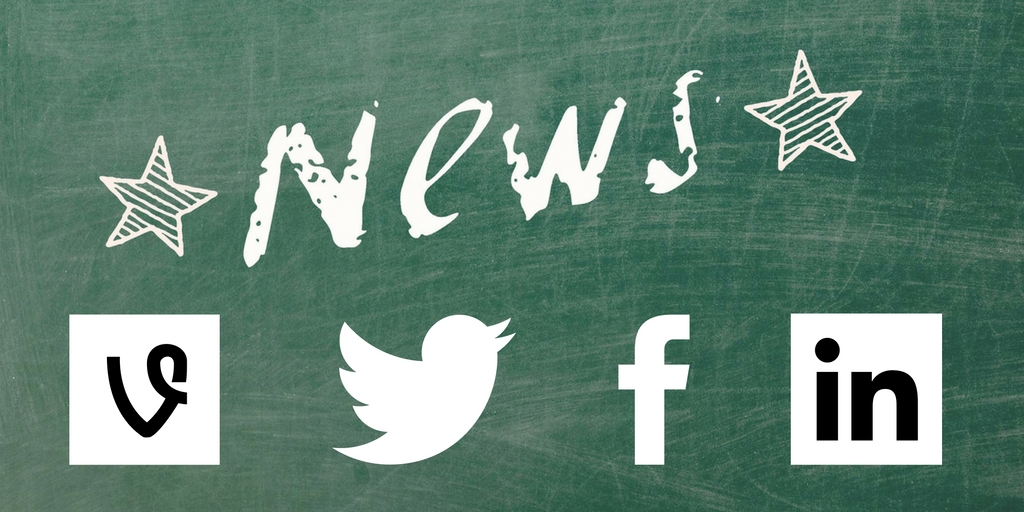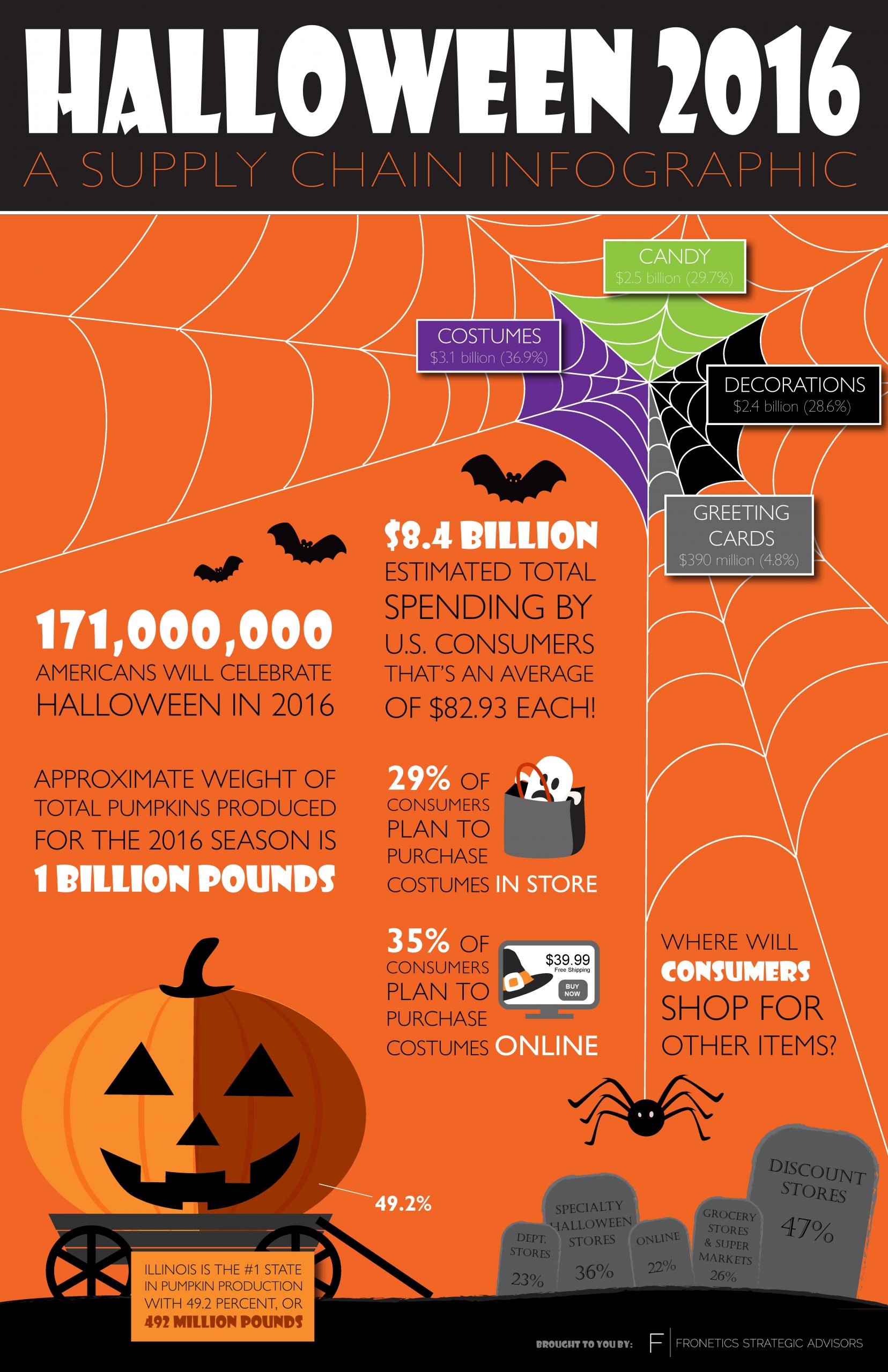
by Fronetics | Nov 14, 2016 | Blog, Content Marketing, Logistics, Manufacturing & Distribution, Marketing, Social Media, Supply Chain, Transportation & Trucking, Warehousing & Materials Handling
Fronetics is conducting a survey to determine the benefits and challenges of social media for companies in these industries.
Two years ago, Fronetics surveyed a number of individuals working in the logistics and supply chain industries, including those employed by manufacturing, warehousing, and transportation companies. The survey’s goal was to find out how these companies were using social media, and if they were realizing any benefits or encountering any challenges by participating.
Interestingly, 100% of respondents reported having used social media for 5 years or less. Despite this relatively short implementation period, the majority (68%) said that their companies had already realized benefits from participation — primarily increased engagement with customers, increased market intelligence, and increased business intelligence.
As things go in the technology space these days, social media looks quite different than it did two years ago. What’s more, companies in these industries have, presumably, been using these tools for longer. Have a better understanding of social platforms and more opportunities for businesses impacted the benefit to users?
Fronentics is conducting a new survey to find out. We invite individuals working in the warehousing, manufacturing, and transportation industries — or those in other supply chain and logistics fields — to participate.
The survey takes about 3 minutes to complete. Responses will be reported in aggregate, and no identifiable information (individual or company) will be shared.
We look forward to hearing about your experience with social media!

Related posts:

by Jennifer Hart Yim | Nov 8, 2016 | Blog, Logistics, Supply Chain, Talent
An upcoming webinar series will help your business improve its ability to attract, hire and retain top supply chain talent.
This guest post comes from SCM Talent Group, a national supply chain recruiting and executive search firm.
The supply chain discipline has been experiencing a talent shortage that many experts in the field are predicting will only get worse, before it gets better. Baby boomers are retiring rapidly, while the number of qualified candidates coming up through the ranks aren’t enough to close the gap. While macro-level solutions have been implemented, such as the expansion of university supply chain programs, it will most likely take years before any significant progress is made.
A new webinar series, presented by SCM Talent Group, is centered around the talent aspects of the supply chain discipline. The purpose of this series is to provide low-cost, high-impact solutions and advice that employers, hiring managers, and HR partners can implement in efforts to improve their abilities in attracting, hiring, and retaining top supply chain talent.
The first webinar, “Strategies for Sourcing & Recruiting Top Supply Chain Talent,” will take place on November 10th from 2 p.m. – 3 p.m. EST. Participants will learn how to optimize their supply chain recruiting program and processes around industry best practices and discover creative sources and strategies for attracting and hiring candidates for their supply chain job openings.
Future webinars will take place regularly, and cover various aspects of supply chain talent acquisition and talent development, such as:
- Create an Employee Referral Program that Drives Results
- How to Craft Job Descriptions that Attract Top Supply Chain Talent
- Top Employer Branding and Candidate Attraction Strategies
- How to Develop a Winning Supply Chain Leadership Development Program
Rodney Apple, founder and president of SCM Talent Group who also serves as the career coach for APICS, will lead these solution-oriented webinars, which will occasionally feature guest speakers.
Through his almost two-decade career in both corporate and executive search environments, Apple has experienced an assortment of supply chain talent acquisition and talent development programs. He will provide informative best practices with the goal of helping employers overcome hiring challenges created by the supply chain talent gap.
To register for this upcoming webinar, sign up here. To stay informed on SCM Talent Group’s upcoming webinars, sign up to receive regular updates.
Related posts:

by Fronetics | Nov 7, 2016 | Blog, Content Marketing, Logistics, Marketing, Social Media, Supply Chain
Fronetics is conducting a survey to determine how companies in the logistics and supply chain industries are using content and social media.
Have you ever wondered how your competitors, customers, and business partners are using modern marketing tools like social media? Are you curious how many companies like yours have a blog, how often they publish, and, more importantly, how many are generating new business from it?
Fronetics was curious about these questions and more. So we conducted our first industry-wide survey back in 2014 to learn how logistics and supply chain companies were using content and social media as part of their marketing programs.
The results were very telling. Though all reported leveraging these tools for only a short while, the majority had already seen a positive impact on their business. To read the full reports, click below.
Well, a lot has happened in two years. And, once again, Fronetics would like to take the temperature of the industry to see how the use of social media and content has changed (or stayed the same). So we are launching a new survey for individuals working in the logistics and supply chain industries to weigh in on how their companies are using these tools today.
Each survey takes about 3 minutes to complete. Results will be reported in aggregate, using no personal or company information from respondents. Those wishing to receive the completed report can indicate this preference during the survey.
Please click the buttons below to take our surveys. We look forward to hearing your responses!


Related posts:

by Fronetics | Nov 2, 2016 | Blog, Marketing, Social Media, Supply Chain
Twitter will shut down its 6-second video platform; Facebook launches Recommendations feature; and more social media updates.
Twitter folds Vine
Twitter announced its plans to fold its video platform, Vine, in a Medium post on Thursday, October 27. The mobile app and website will not close immediately so that users can still access and download their Vines before they become unavailable.
The announcement follows news that Twitter would cut 9% of its workforce as it struggles to become profitable. Meanwhile, video platforms, like YouTube and Snapchat, and video capabilities on other social networks, like Instagram and Facebook, continue to soar in popularity. Read more
Facebook launches Recommendations feature and CTA buttons for local businesses
Facebook’s new Recommendations feature allows users to gather, map, and organize local business recommendations from their friends. You can pose a question, such as, “Where is the best place to buy paint?” and Facebook will auto-add extra information, like addresses and reviews, based on your friends’ responses.
Additionally, businesses can implement new call-to-action buttons to drive users to book an appointment, purchase tickets to an event, and more without ever leaving your business’ Facebook page. Read more
Facebook Live launches broadcasting tool for verified pages
Facebook Live’s new tool allows the administrators of verified pages schedule a live broadcast up to a week in advance, so that companies “can build anticipation and buzz” with their audiences. A page’s fans can wait in a virtual lobby as soon as three minutes prior to the launch of the broadcast.
As soon as a page schedules a broadcast, fans receive a notification in their newsfeeds and an option to schedule a reminder. Pages will receive a link to share or embed in websites, social media posts, and blogs. Read more
Simply Measured releases annual State of Social Marketing report
Social analytics company Simply Measured recently released its annual report regarding social media use by some of the biggest brands around the globe. The 2016 State of Social Marketing Report uncovered trends about a wide range of topics, but among the most interesting was the disconnect between how marketers are measuring social media success and what their leadership is asking for. Read more
More social media news and features to watch
Related posts:

by Fronetics | Oct 31, 2016 | Blog, Current Events, Strategy, Supply Chain
U.S. Consumers plan to spend a whopping $8.4 billion on costumes, candy, decorations, and more to celebrate Halloween 2016.
The National Retail Federation anticipates spending for Halloween 2016 will be at an all-time high.
The NRF’s annual survey found that 171 million Americans will celebrate the holiday, spending a total of $8.4 billion, the most reported in the survey’s 11-year history. Consumers plan to spend an average of $82.93 each, up from last year’s $74.34 per person spending.
As far as costumes go, NRF says to expect zombies, Minions, and characters from Star Wars and Disney’s Frozen to show up at your door. If you’re still looking for ideas yourself, try Pinterest, where 17% of consumers plan to get their inspiration for costumes this year.
Are you one of the 16% who will dress your pet up for Halloween? Take a note from last year’s top 5 pet costumes:
- Pumpkin
- Hot dog
- Batman character
- Devil
- Bumblebee
Check out our infographic of other interesting Halloween 2016 facts from the NRF’s survey of 6,791 consumers below.
Halloween 2016: A supply chain infographic

Related posts:

by Jennifer Hart Yim | Oct 24, 2016 | Blog, Strategy, Supply Chain, Talent
Millennials have a reputation for being lazy and feeling entitled — but what if we got it all wrong?
This guest post comes to us from Argentus Supply Chain Recruiting, a boutique recruitment firm specializing in Supply Chain Management and Procurement.
For the past few years, there’s been a glut of articles about the millennial generation in the workforce. These articles originally focused on how millennials’ perceived laziness and entitlement kept them from securing long-term employment. Coincidentally (or maybe not) these articles first started popping up around 2009-2010, when the great recession made for the toughest jobs climate in decades, especially for young people trying to find their first good jobs out of university — a difficult task for most grads even in a boom economy. Over time (as the economy improved and millennials’ ranks in the workforce began to swell), these millennial-focused articles shifted to discussions of what makes millennials “difficult” to work with. There are a few negative stereotypes that tended to come out of this analysis:
- Millennials ask for raises and promotions constantly.
- Millennials hop around from job to job with little loyalty to their employers.
- Millennials always want to take more vacation time than their superiors.
Of course these stereotypes (like most stereotypes) don’t actually hold up to scrutiny. And in the past couple years it seems as if the business press has finally caught on to the fact that millennials are fitting in and thriving in working culture. Now, companies recognize that this generation offers unique advantages to employers. Millennial-focused analysis has shifted to talking about millennials’ good qualities, including being creative, highly proficient with technology, and excellent multi-taskers.
What millennials aren’t doing
What it comes down to is that companies are now fighting over millennial talent. They’re trying to do all they can to get the star performers to the table. On this topic, we read an interesting piece in the Toronto Star recently — just the latest in the long history of millennial thinkpieces — that bats down one of the nastiest stereotypes about millennial workers. It discusses how new research shows that millennials actually take less vacation than other employees, and tries to tease out the implications of how a seemingly-more “casual” working environment can lead to a chained-to-your-desk working culture.
Interesting stuff.
The article, titled “Millennials Can’t Afford to Keep Skipping Vacation,” discusses the phenomenon of millennial “work martyrs” — people who are afraid to take time off, even if that time off is paid vacation mandated by employment contracts. It cites research from the non-profit U.S. Travel Association that millennials take much, much less time off than stereotypes would dictate. (We should mention that, over the past 15 years, the use of paid vacation days has fallen off a cliff among a lot of different age groups). At Argentus, we try to stay abreast of whatever’s happening in the world of work, so it’s interesting to us think through issues like this.
So what are the implications of this trend?
The article echoes a lot of anxieties about 21st-century white-collar working culture more generally: that in our hyper-connected world, employees are expected to be always working, even when they’re not in the office. Companies reward people based on time commitment rather than productivity. Vacation time might be generously apportioned, or even unlimited, but workers don’t necessarily feel like they can take vacation. The Star article cites an interesting case: in 2015, Kickstarter began offering unlimited paid vacation, but the result was that actual time off taken went down. It appears that workers, especially millennials who are often working more junior, more precarious jobs, won’t take time off unless you tell them to.
Whether this plays out in every company, anxieties about these changes in the workplace are real: They illustrate the importance of work/life balance, which, despite being a buzzword, is also a real concept that pays dividends for employers. Employees who take vacations are not only happier, they’re more productive.
The solution? Maybe companies should start enforcing paid time off instead of rewarding workers who adopt a “work martyr” mentality.
Related posts:









